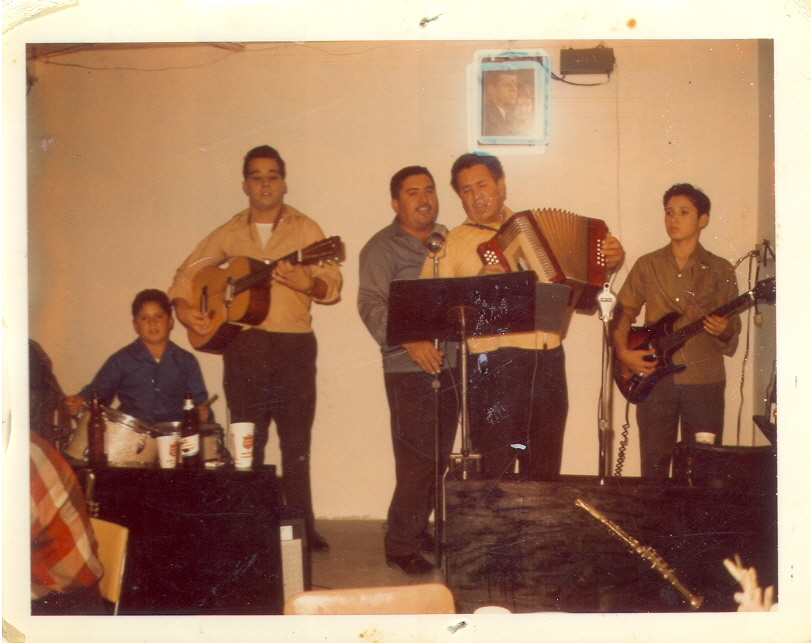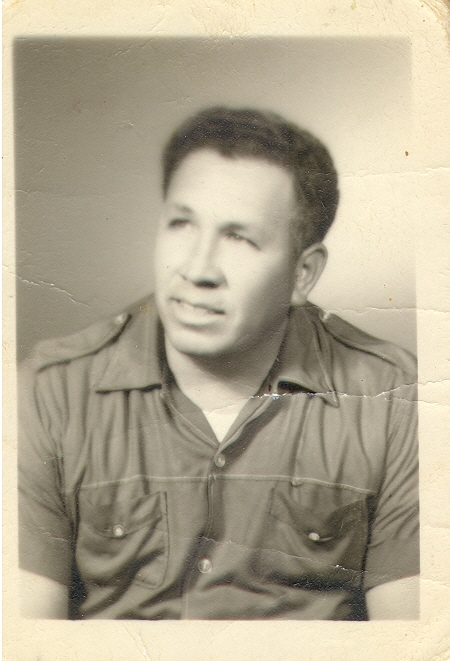TRANSCRIPTION
What was it like growing up and having to work at such a young age?
It was very hard at that time; we had to do whatever we could. Dig holes, trenches, cess pools anything that was available to survive, and then also there were yards to be cut, any little thing that we could get a hold of, we did it, and it was the reason why we had to sometimes quit school early. And go to work after I finished Elementary school I went to Harlandale in 1940, and I only went till the eighth grade till 1943.
Why did you have to drop out of school even though you had other siblings older than you to go to work?
Because my sisters and my older brothers they had gotten married, they were on their own and it was just me, my brother Al, and Alex. So I started working for my dad driving a truck, at that time, and I also worked with Alfred Vegnes before I started to drive he was, oh he had a plumbing shop and I used to do work with him. We used to do a lot of plumbing around here in Harlandale, and ah also after I finished there with him I went to work with my dad full time, and I just kept driving the truck until then I joined the night ah Texas National Guard and also Alex my brother did too, and I put in four years of service in the Texas National Guard.
What year was that?
That was right after I quit school, that had to be about 1944, and in 1947 I joined the Army and I was stationed at South Fort Hood as a medic, for four years but my last year I was stationed at Camp POLK, Louisiana, and in 1950 I worked at Barrett Industries, and I was a truck driver.

Who the one person who you looked up to, to follow in their footsteps?
It was my father, my dad Epifanio Hernandez, he was a good provider and he us going, doing everything he could for us so we had a do you know whatever we could do to help him out.

When did you decide that you no longer needed an education to survive in society?
Because I didn't have a choice I had to do something for myself, for the future. I didn't want my family to be in the same boat after getting married, and that's the way my dad was a good provider, he had done his best for us and that's why I followed in his footsteps.



Was there anything that you want to talk about as far as your upbringing?
Yes, we were poor but we were very happy because my dad he was a good provider and also he had an accordion and he used to play music for us and that's how I learned to play the accordion, and really honesty he played it real good I loved the music the way he played it so then I started playing it and after a while I was I had my own conjunto and I was playing in the Nite Clubs, I played in a lot of Nite Clubs around here in San Antonio and I can name a few of them, and this was where I started I think it was around probably around in the 1960s when I really started getting the hang of it, and you know I love music, so then I started playing the accordion and finally how I got started there was this person his name was Juarez that was his last name and he started playing the guitar and I started playing the accordion and we used to get together and then after a while he got married and he left and I started, I was already married , and I started my own conjunto I started getting one of my compadres to play with me and he started the music this was in the early 60s, and we used to practice later on we got a first we started just the accordion and the bajo-sexto after a while we got a bass player and we started playing music at the Nite Club around about 1963 or 1964 we were El Conjunto" Los Compadres Allegres" Then the reason we got that name was one time I was playing at Morales Nite Club and we didn't have a name for our conjunto and so everybody started putting in names and we used to call each other compadre, compadres because we were really the compadres, and one of them put in the compadres, "Los Compadres Allegres", so everybody went for it so so that's how we started our conjunto, and later on I started to playing at the Tropicano one night and then the owner of the place he had a conjunto also his name was "El Conjunto Alamo"De Leandro Guerrero who he was also my first cousin and I was I used to play in his Nite Club and one time we had a mano a mano, and and we were doing all kinds of tricks with the accordions and I mean we were really having a good time and the people and everybody was so happy that I mean I just went for it. I gave it my best shot and from the 'Compadres Allegres', then he told me that the people were screaming and hollering and I'm not bragging but this is the truth and he told me, Well I guess you got the trophy now. I'm gonna re-name your conjunto and I said 'What" he said, "El Conjunto El Dedos De Oro", which means the "Golden Fingers" and that's how I got my name "The Dedos De Oro", that's how I'm known by a lot of people around San A ntonio, they used to go to the Nite Clubs where I used to play the accordion and I'm 83 years old and I can get in the bandstand best with anybody. I'm not as good as I used to but I still love to play the music and I'm still at it, and I would also like to add that my son-in law Pete Cardenas my bajo-sexto player and my nephew Joe Farias jr.and Juan Farias were also in my band in the 60s probably in 1968 or 1969 around that time they were playing with me my job had offered me a Supervisor job and assigned me a vehicle to take home, so my nephews had started their own band which was "Los Hermanos Farias" now they are known as "The Tropa F" and are still famous.


